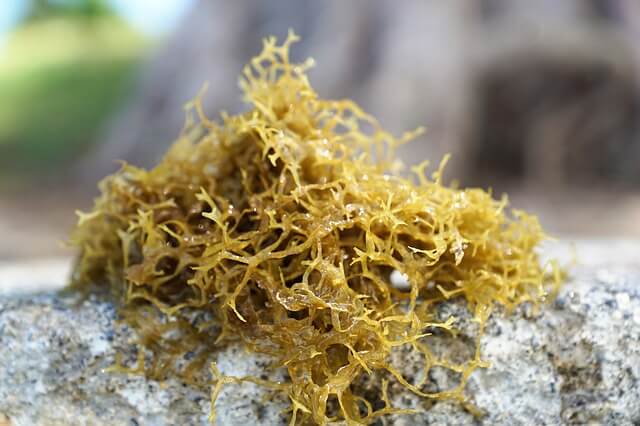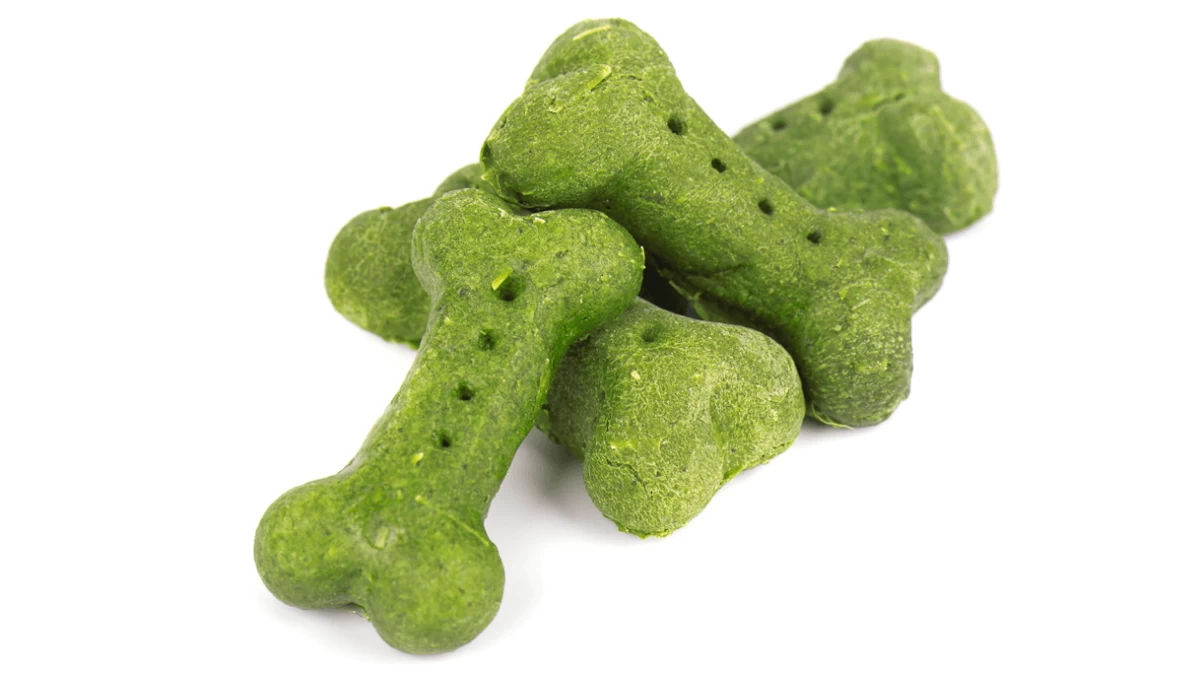Can Dogs Eat Seaweed?
22.02.2021.
Vegetables are not growing on land exclusively; there are many of them growing naturally in our oceans. Humans started eating more seaweed in recent years as scientists confirmed their status as superfoods. They are often present in salads, as a supplement, or in sushi. Honestly, we can say they are absolutely delicious.
Seaweeds offer plenty of health benefits to us, and in the last 10 to 15 years, their popularity is exploding. There are kombu, kelp, and other seaweeds that we can eat. Scientific evidence shows that humans have been eating it for more than 10.000 years. Since it is very healthy for us, we can assume that it would be safe for our dogs to eat. You would be right to assume that, but there are some things you should know before you feed your dog seaweed.
Is seaweed safe for dogs?
The shortest answer to that question is - yes. But you shouldn’t feed your dog with just any seaweed. There are things to be careful about, especially about wild seaweed found on beaches. Your dog won’t naturally go for it, but if you start giving them the healthy supplement, they might develop a taste for it, and when they find some on the beach will want to eat it. Here is what you need to know about wild seaweed.
Another popular sea treat might be interesting to share with our dogs. Check out this article - Can Dogs Eat Shrimp?
Wild seaweed
Carefully grown and harvested seaweed and seaweed supplements can be safe for dogs to eat. Still, wild seaweed that washed ashore is not. If you are not a marine biologist, it is possible you don’t know what type of seaweed you come across and whether or not it is safe for consumption.

The biggest threat wild seaweed found on the beach presents is causing a blockage. It was exposed to the sun, and most likely, it is dried and shrunk due to heat exposure. If your dog eats it, it will absorb liquids in their tummy where it can double in size. That situation can quickly become dangerous. If you noticed your dog gobbling on wild seaweed, you should immediately call your vet.
That isn’t the only hazard it presents; seaweed found on the beach can contain pollutants and all sorts of critters living inside them that your dog should not eat. That can cause poisoning, and both hazards can have fatal consequences.
Ever thought about giving fish oil to your dog? Here is an article that can tell you all about it - Fish oil for dogs.
Are there any benefits for my dog eating seaweed?
Whatever you decide to introduce to your dog’s diet, you should make sure they benefit from it. Sure, it makes sense to give them something they love just because of the taste, but taking risks with your dog’s health is not advisable. Luckily, there are safe ways your dog can have seaweed, and here are the safest ways you can ensure they get all the benefits and no risk.
Seaweed supplement
The safest way to give your dog seaweed is by introducing it as a supplement. There are plenty of options available, and some of the most popular ones are:
- LifeLine Pet Nutrition Organic Ocean Kelp Supplement
- Dogzymes Organic Norwegian Kelp
- Icelandic Kelp Meal
- Animal Essentials Organic Ocean Kelp
- Zesty Paws Glucosamine for Dogs

Health benefits
Now you know the safest and easiest way to add this superfood into your dog’s diet. It is packed with great nutrients that can do wonders for your dog’s skin, joints, coat, immune system, and endocrine glands. If the salty taste worries you, you should know that seaweed is low in sodium. Other healthy minerals give it a salty taste. Some of the best nutrients seaweed offers our dogs are;
- Omega-3 fatty acids - You probably heard about the health benefits omega-3 fatty acids offer our dogs and us. They are an essential nutrient that helps prevent and manage heart diseases. Plus, recent studies have shown that omega-3 fatty acids help lower blood pressure.
- Iron - Iron is one of the most essential minerals in the body. The body needs it for growing and developing. Iron helps create hemoglobin, an essential part of producing red blood cells that carry oxygen to the lungs.
- Iodine - Not all foods contain iodine, but seaweed does. It is necessary for the production of thyroid hormone that controls metabolism and the development of the bones and brain during pregnancy and infancy.
- Magnesium - Magnesium is another essential nutrient the body needs. It helps control muscle and nerve functions, blood sugar levels, blood pressure, and DNA, bones, and protein production.
- Vitamin B12 - This vitamin is excellent in helping develop the dog’s cognitive functions. It also helps keep the nervous system healthy and release energy from food.
One of the most popular supplements for dogs is glucosamine. Here is an article that can tell you more about it - Glucosamine for dogs.
Portion control
The most important thing about introducing new things to your dog’s diet is portion control. You don’t want to give them too much supplement at once because that can be counterproductive and dangerous. Too much kelp supplement can lead to arsenic poisoning, and too much nori supplement can lead to mercury poisoning.
The best thing you could do is ask your vet for advice. Ask them which brands to use and if seaweed supplement is the right choice for your dog. Make sure you know as much as you can before giving your dog seaweed and check their reaction the first few times you feed them this supplement.
World Dog Finder team







Share